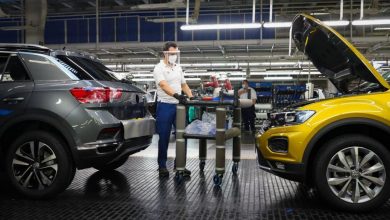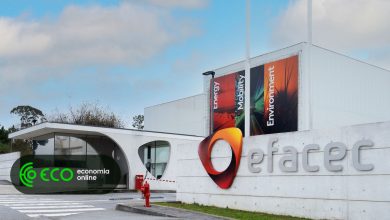
Hungarian-based Global Automotive Software Supplier NNG on Automotive Industry Trends
The continuous development of the software industry is having a powerful impact on a growing number of other sectors. In the years ahead, software solutions will continue to invade our daily lives, in ways we would have considered to be sci-fi just years before. The forthcoming expansion in the number of connected devices will enable technology to assist users in almost every life-situation.
With mobile network technology now entering its fifth-generation, transportation, like many other industries, is expected to increase its investment in smart and electric vehicles, rewiring how we think about travelling.
Most mobile network providers will roll out 5G services by the end of 2020 at the latest, and this technology is seen as likely to play a pivotal role in the realization of smart transportation and smart-city solutions. It is widely expected that connectivity will bring enormous change to the industry in terms of safety, convenience, comfort and efficiency. As such, 5G is vital for making connected, and self-driving cars a reality, not least through the new sensor applications.
Besides efficiency and safety, vehicle user experience (UX) also plays an increasingly important role in car making. Just as there is no smartphone without iOS or Android, so too, the automotive software and on-board systems that provide the vehicle UX will become a pivotal element in car-manufacturing in the coming years.
The quality and aesthetics of infotainment and driver-assistance systems can already be considered a distinct competitive advantage for every car brand. Car buyers expect their preferred vehicle to offer the same seamless experience provided by their smart devices. Accordingly, consumer demand will drive vehicle development over the coming years. Expect our cars to become smarter, safer, and much more than a simple tool for getting around in the city.
Many connect future motoring and transportation with electromobility, which may gain ground on a larger scale than self-driving cars. However, there is a factor that plays a key role in both areas: efficient navigation.
Built-in navigation is one of the most substantial factors regarding the usability of an electric car. Navigation is crucial for covering long distances in an electric car, or for preventing the battery from running down unexpectedly. The navigation system must have full knowledge of the car, its technical features, the driver’s driving style, based on which it can calculate which charging point makes a reasonable choice. It may even, in the future, book the selected timeslot for the car.
“If the software in connected cars can make the different vehicles communicate with each other, in the future we may see much more optimized traffic. The software solutions of the future will prevent large traffic jams, moreover, they may lead to a decrease in the number of accidents resulting from human error, as has already started with driving assistance software,” said Martin Pfeifle, CTO of NNG LLC
As connectivity becomes ubiquitous, new areas of vulnerability open. The threat to the vehicle comes from the architecture of the in-vehicle network over which all the connected components, or electronic control units and car systems, communicate. Designed in a time before wireless connectivity was a realistic consideration for the car, there is no inherent security, and connected Electronic Control Units communicate freely with each other with no authentication.
In theory, terrorists could take control over hundreds of cars or shut down whole transportation systems. Such a threat must be eliminated, NNG believes. As a totally new area for automakers, and one in which they need to excel, the pressure is high: consumers are focusing more on this problem, and governments have also realized that, similarly to other safety regulations in the car like the seatbelt, this also needs to be addressed.
NNG acquired Arilou to address the growing problem of in-vehicle cyber-security in the automotive industry. Arilou develops solutions that protect and enhance the in-vehicle network; its expertise prevents unwanted parties taking over control of the car. Without the seamless, safe, and secure software operation, connected cars will not find wide acceptance.
NNG was recently recognized for its cyber-security excellence and market-ready solutions by Frost and Sullivan and awarded its 2019 Best Practices Award for Technology Innovation.
Although smart and self-driving car technology is evolving rapidly, the appearance of ubiquitous self-driving cars in the next decade, say, might not be realistic. Much depends on the industry, regulatory factors, and consumer trends. Most probably, self-driven cars will be used in specific, geo-fenced areas, such as highways, then slowly rolled-out to cities as the technology evolves.
New Dawn
At the dawn of a new era, with standards only now being formed, automakers need to make decisions today that could well determine their future. Judging the trends incorrectly could mean the end of a company. With its 15 years of experience and a rock-solid reputation, NNG is forging ahead of these trends, developing cutting edge software solutions, and supporting its partner automakers with their needs for cyber-security, UX, navigation, and infotainment solutions.
During 2020’s CES, one of the world’s largest and most influential tech conferences, NNG announced its latest development. The new software is a first-of-its-kind solution providing a situational analysis and lane-guidance module for navigation, along with other ADAS (advanced driver assistance system) features providing a basis for future automated driving applications.
NNG’s solution can, by algorithmically calculating lane occupancy, predict other vehicles’ positions in surrounding lanes, enabling the car to suggest tactical maneuvers to the driver or to the autonomous driving module. The solution also features optimized guidance timing helping to dramatically reduce driver cognitive load, increasing road safety.
“The recent ground-breaking improvements in vehicle-sensors, AI technologies, and HD mapping not only enable automated driving but can also be used to make manual driving safer by warning the driver, via modern human-machine interfaces such as augmented reality head-up displays,” said Pfeifle. “NNG is excited to be at the forefront of this wave of innovation.”
What does the future hold apart from smart, electric mobility protected by cyber security solutions?
Trends show that not only technology changes, but also socio-economic factors will play a very important role. Car ownership models are expected to change, the need for owning a car will slowly decrease as mobility as a service (MaaS) providers emerge.
This trend will shape market demand in the long run. In the next decade, it’s likely only a handful of cities will ban conventional cars and rely solely on self-driving and on demand transportation. However, these technologies will still improve the utilization and efficiency of vehicles. In turn, this will help reduce pollution and congestion.
Additionally, by eliminating parking cars from cities, the liberated area can be used for other purposes, such as green parks and pedestrianized streets, making the urban areas much more livable.






